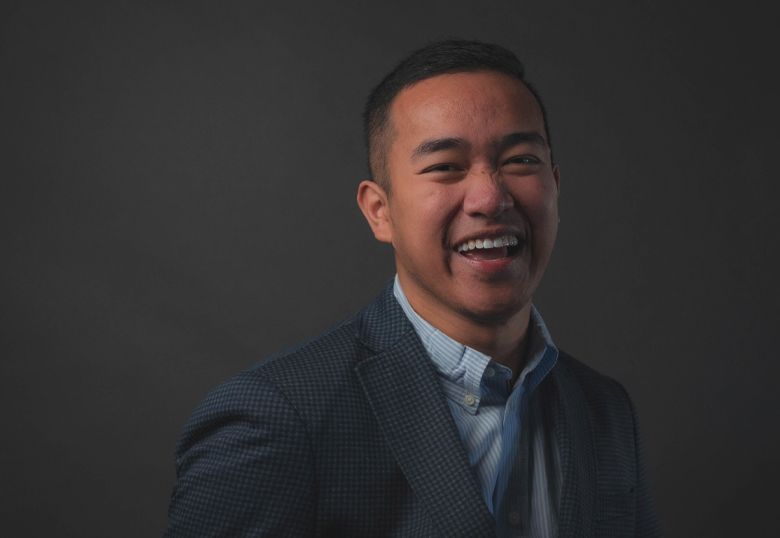Lionel Migrino, a fifth-year University of Lethbridge student in the Dhillon School of Business (Calgary campus), has turned his camera lens on members of his Filipino community as part of a CBC Instagram project called Kapitbahay for Filipino Heritage Month.
“I was contracted by CBC and I got asked to be a photographer for this project because I’ve been heavily involved with the Filipino community in Calgary for about six years,” Migrino says. “In the past two years, I’ve been doing a lot of photography and advocacy.”

The project is a celebration of Calgary’s Filipino population, which is the fourth-largest in the country with more than 75,000 members. Migrino has been introduced to artists, teachers, advocates and business owners through his photography for Kapitbahay.
Migrino is a second-generation Filipino with cerebral palsy. While he was born and raised in Calgary, his parents lived in Manila before immigrating to Canada. He grew up surrounded by Filipino culture and food and, thanks to his mother and grandmother, he understands Tagalog, the official language of the Philippines.
He took up photography because he wanted an activity to help relieve some of the stresses he was experiencing from his studies. His friends were into photography, so one day he tagged along with them when they were out shooting photos. As he watched them try to get the perfect shot, he got more curious by the minute.
“After a week I bought my first camera,” he says. “It started out as a hobby, but later it became a passion of mine.”
Migrino’s interest in photography led him to participate in a series of workshops in 2019. Organized by Migrante, a community organization of migrants in Alberta, the workshops allowed Filipino migrants to learn about arts-based storytelling and share their stories of struggles and victories. The exhibit, Kwento’t Litrato (Stories and Photographs), that resulted from the workshops was funded by the Ministry of Culture and Tourism and the photos were also bound into a book.
“My photos were all about racism and microaggressions,” says Migrino. “I learned a lot in this project. Many Filipinos started out as migrant workers and a lot of them didn’t choose to come here to have a better life for themselves. They came here in hopes of making a better life for their whole family. Some of them made sacrifices because they had to leave their family and friends behind. I wish people would be more appreciative about that because we don’t give a lot of credit to the front-line workers in Canada.”
When they arrive in Canada, many struggle and face precarious employment situations. Migrino is no stranger to the kinds of injustices they experience as a Filipino with a disability. Even so, he and his community members are resilient and place a high value on family.
“I have to overcome not only racism but ableism, too,” he says. “Having Filipino values instilled in me helps me overcome a lot of injustices I have experienced in my life and allowed me to move forward. I know my family will always be there to support me and I’m really grateful for that. Seeing other Filipinos going through hardships makes me more vocal. I want to give voice to the voiceless. That is what my photography is all about — showcasing the lives of the marginalized and their experiences.”
